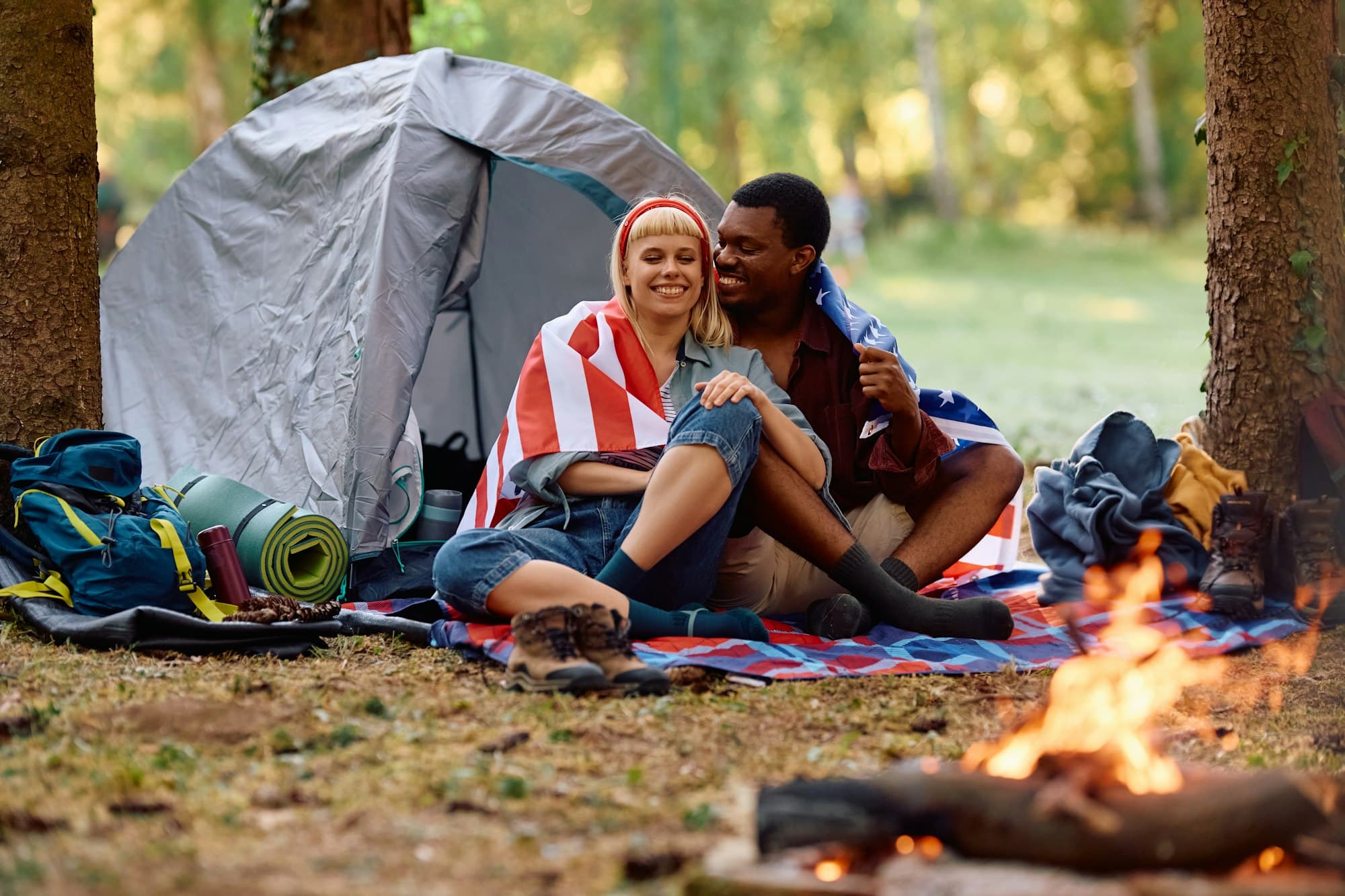What are the latest UK regulations on campfires near woodland areas?

For many, the allure of camping lies in the immersive experience of living in the wild. As you set up your tent amidst the forestry, the chirping birds and rustling leaves become your background music. The smell of the earth and wood fills your nostrils. And, there is something uniquely comforting about gathering around a campfire under the starlit sky. However, with the appeal of camping, comes the responsibility of protecting our natural environment. Today, we will explore the latest UK regulations that govern campfires, especially near woodland areas.
Fire Regulations in National Parks
National parks are a treasure trove of natural beauty and biodiversity. These regions, such as the national parks in Scotland and England, provide ample opportunities for camping. But, what are the rules about lighting a campfire? Let's dive in.
A lire également : What are the best off-the-beaten-path campsites in the Lake District for a tranquil experience?
In the UK, many national parks have specific regulations when it comes to lighting fires. The primary reason is to prevent wildfires and ensure the safety of the park, its wildlife, and its visitors. For instance, some parks such as the Lake District National Park, prohibit open fires and barbecues, except in designated areas or on your own land with the landowner's permission. However, it's essential to check the specific guidelines for each park before you set out on your camping adventure.
Fire Regulations near Woodland Areas
Now, what about setting up a campfire near woodland areas? This is a question that often perplexes camping enthusiasts, given the proximity to abundant firewood. However, it's vital to remember that forests and woodlands are delicate ecosystems that can be easily damaged.
A découvrir également : What kind of solar chargers work best for camping trips in cloudy UK weather?
The Forestry Commission in England and Scottish Forestry are clear about this: lighting fires in woodland areas can harm wildlife, destroy habitats, and potentially cause devastating forest fires. So, the general rule is to refrain from lighting fires in or near woodlands.
In recent years, due to the rise in wildfires, regulations have become stricter. In many public forests and woodlands, campfires are not permitted at all. Where fires are allowed, they must be lit in a designated fire pit, away from trees and dry grass. Fires must also be fully extinguished before leaving the site.
The Role of Landowners in Fire Regulations
Landowners play a significant role in fire safety. Whether it's a private piece of land or a designated camping site, landowners have the right to set their own fire regulations.
If you're camping on private land, always seek the landowner's permission before lighting a campfire. They may have specific rules about where you can light a fire, what you can burn, and how to extinguish it. Some landowners may even provide a fire pit or a safe area for you to use.
Remember, respecting the landowner's rules is not just about being a good guest. It's also about protecting the land and its natural inhabitants from fire damage.
Penalties for Breaking Fire Regulations
So, what happens if these fire regulations are not adhered to? Well, the consequences can be severe, reflecting the seriousness of the potential risks involved.
In the UK, if a fire gets out of control and causes damage to the land, forestry, or wildlife, you can be prosecuted under the Wildlife and Countryside Act 1981. You may also be held financially liable for any damage caused. Therefore, it's in everyone's best interest to follow the rules and regulations to the letter.
The latest UK regulations on campfires in and near woodland areas are there to protect not only the natural beauty of our landscape but also the safety of the public. Despite their restrictiveness, they need not dampen the spirit of your camping adventure. With careful planning and consideration for the environment, you can still enjoy the warmth of a campfire while camping, responsibly and legally.
The Influence of Climate Change on Fire Regulations
Given the existing concerns about climate change, it's critical to understand its role in shaping the latest UK regulations on campfires near woodland areas. As temperature patterns shift, the dry season becomes longer and more intense, thereby increasing the risk of wildfires.
In this context, the Forestry Commission in England, Scottish Forestry, and the Forest Service in Northern Ireland have had to reassess their fire safety policies in national parks. There is a heightened focus on preventing any human-caused wildfires that could further exacerbate climate change and its impacts.
In addition, wild camping, a popular activity in places such as the Peak District National Park and in the South West, presents its own set of challenges. Disposable barbecues and ill-prepared campfires can pose a significant threat to these areas.
Hence, these authorities have issued a strong directive against lighting fires in or near woodlands. Outdoor access codes such as the Scottish Outdoor Access Code stress the importance of 'leave no trace' camping, which includes avoiding fires.
The public forests throughout the UK share similar regulations, with some even going as far as banning campfires altogether. Best practice dictates using a lightweight stove for cooking and warmth. If you must have a fire, then softwood logs are suggested as a safer alternative to gathering wood from the surroundings.
Conclusion: Protecting our Natural Heritage by Following Fire Regulations
In conclusion, the latest UK regulations on campfires near woodland areas serve a dual purpose. They aim to protect the rich biodiversity of national parks and public forests, as well as to safeguard the safety of the public. These guidelines have been shaped by factors such as climate change and the rise of wild camping.
As a responsible camper, adhering to these regulations — whether it's asking for a landowner's permission, following the outdoor access code, or choosing to use a lightweight stove instead of lighting a fire — can go a long way in preserving the natural landscapes we so cherish.
Remember, it only takes one negligent act to start a wildfire that can cause immense damage. So, let's embody the spirit of the 'leave no trace' principle and ensure that our love for camping doesn't conflict with our duty to protect the environment.
Ultimately, these fire safety regulations make it abundantly clear: when it comes to campfires in and near woodland areas, it's best to err on the side of caution. So, the next time you're planning a camping trip in a national park or a wild camp in the South West, ensure that you are well-versed with the rules and prepared to follow them to the letter. That way, we can all enjoy the beauty of the UK's outdoor spaces for generations to come.
